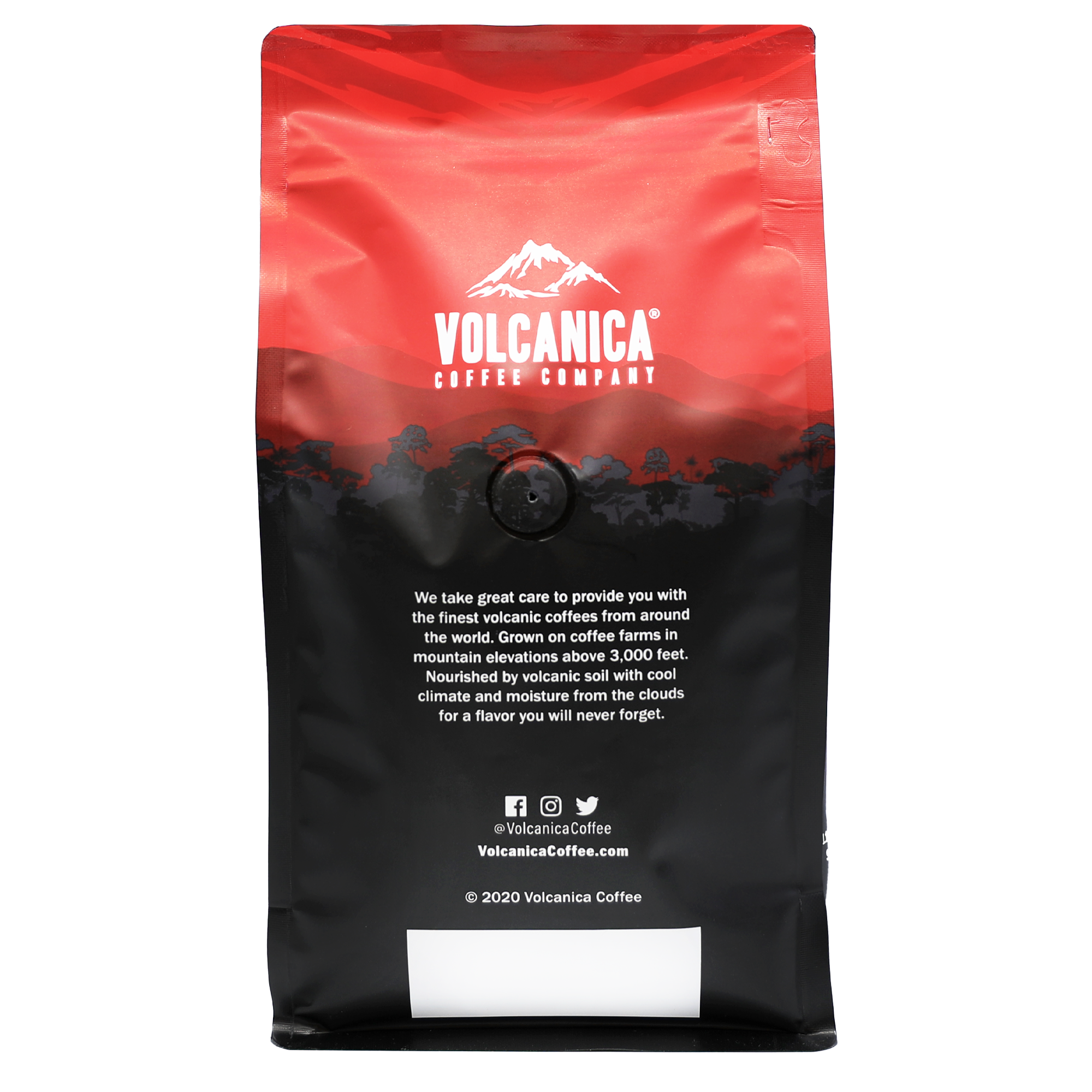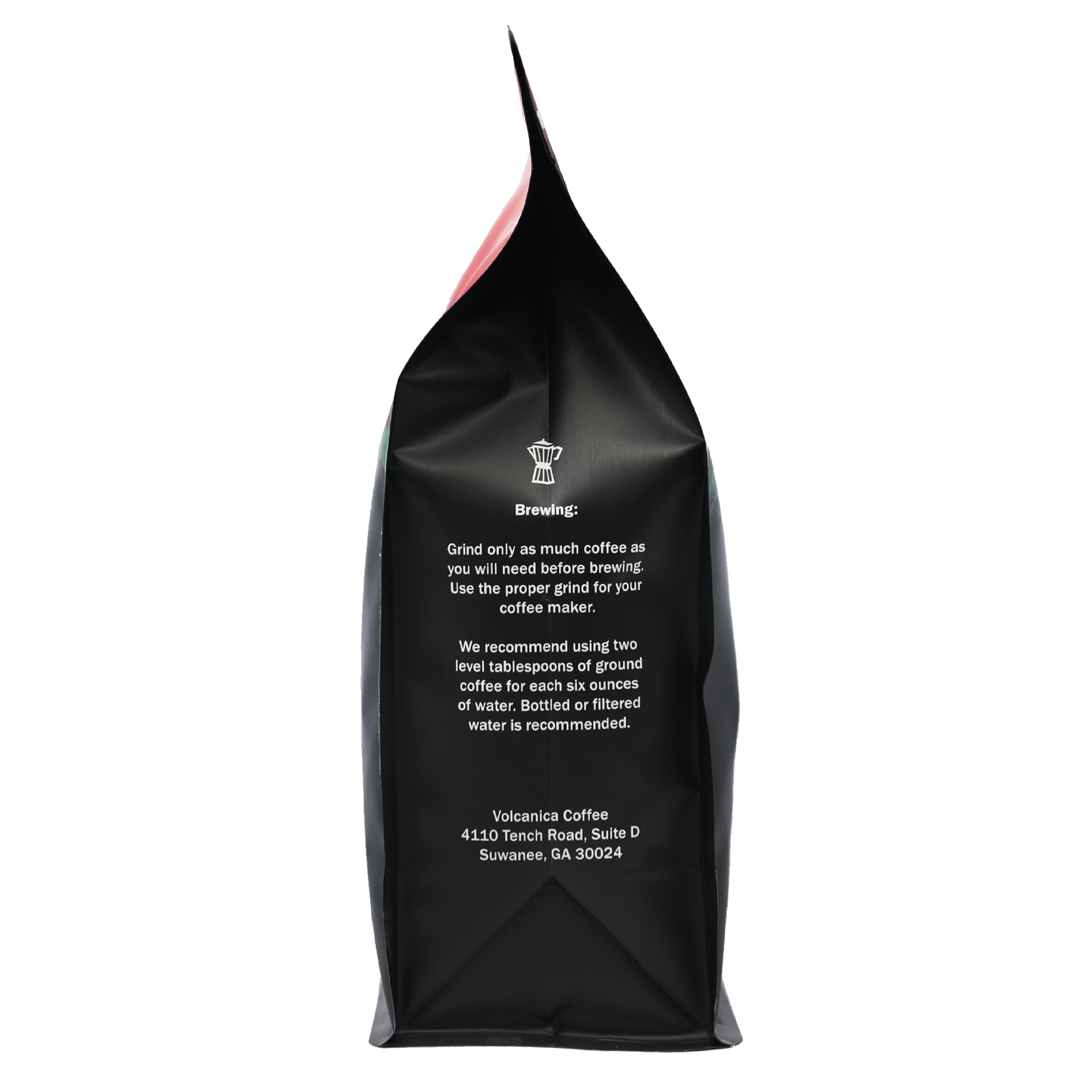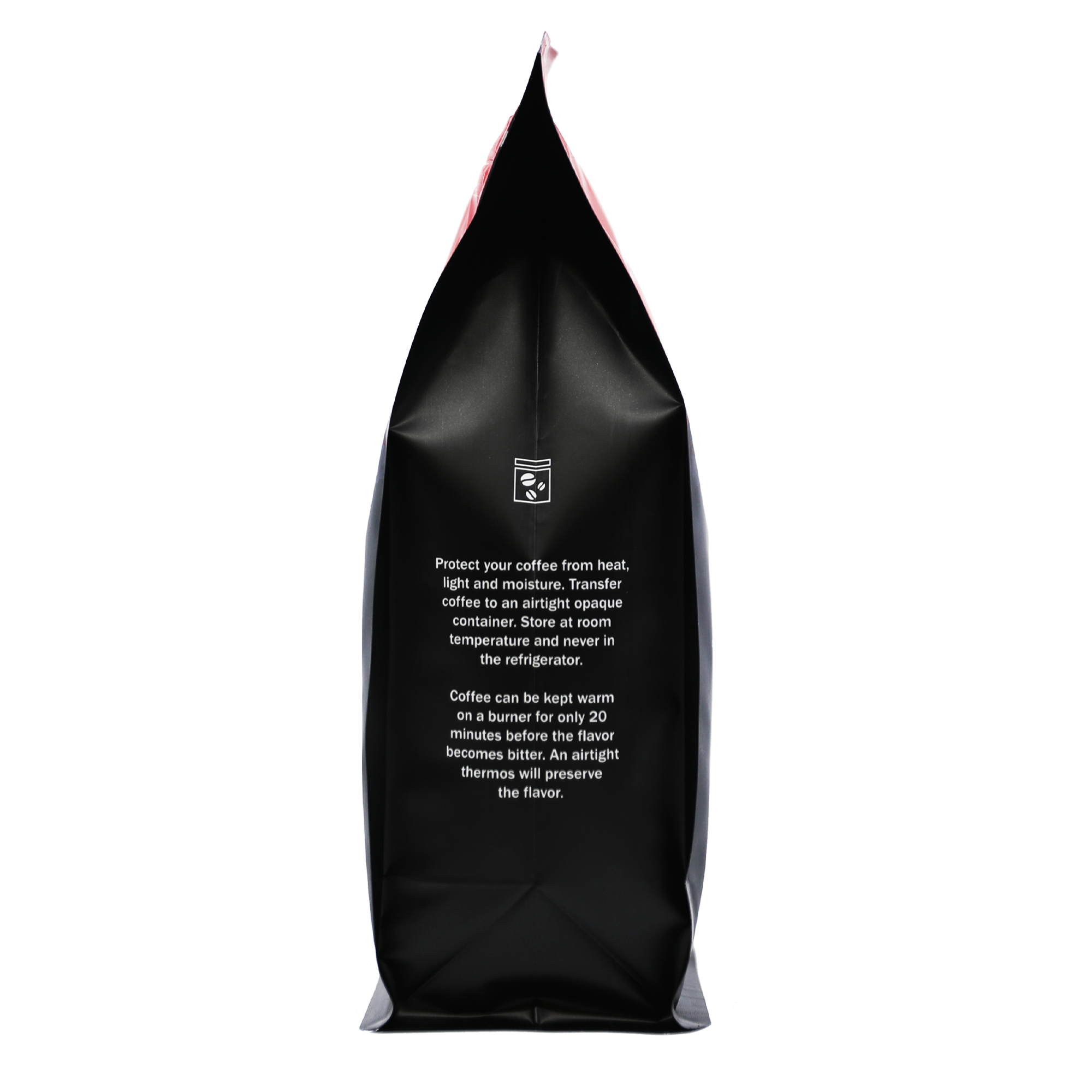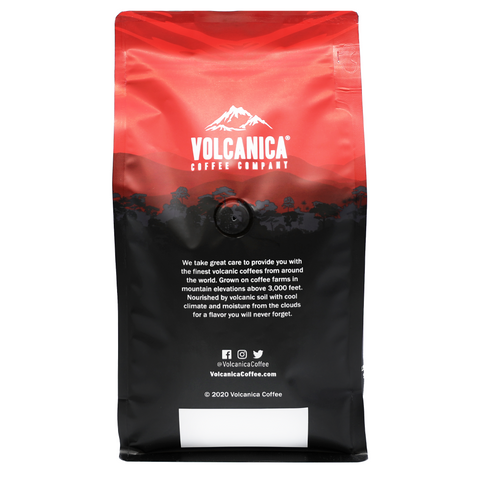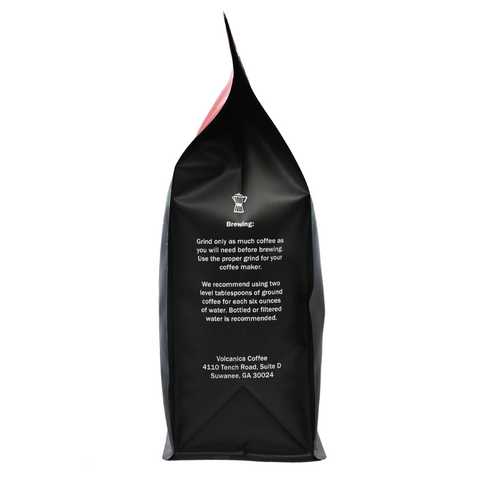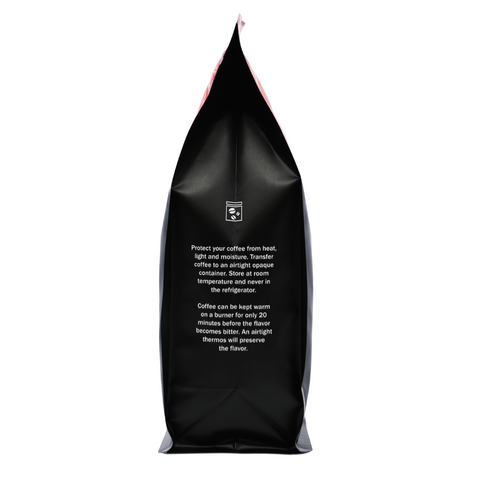Nicaragua Guadalupe and the Giant Peach Coffee
- Regular price
- $29.99
- Regular price
-
$0.00 - Sale price
- $29.99
- Unit price
- per
Nicaragua Guadalupe and the Giant Peach Coffee from Guadalupe's Estate, takes your tastebuds on a summer-time adventure to experience this special coffee with distinctive sweet peach notes, likely a result of the unique combination of Red and Yellow Catuai. The secret to Guadalupe's parchment coffee smelling like juicy peaches is possibly from the naturally occurring yeast on her farm. Jump into summer with a cup of this fun and peachy coffee to keep you energized for your countless activities.
Farmer: Guadalupe Herrera
Farm: Finca Guadajey
Certifications:
- Kosher Certified
Flavor Notes: Peach, Apricot, Nectarine, Mango, and Berry
Processing: Washed Process
Roast: Light Roast
Variety: Red Catuai, Yellow Catuai
Additional Information:
- Altitude: 1230m
- Country: Nicaragua
- Drying: Raised Beds (A natural drying process that results in a sweeter, more floral flavor)
- Microlot Coffee
- Single Origin Coffee
- pH: 5.1
Finca Guadajey
Guadalupe's farm is called Guadajey, a combination of the names of her family members. She plans to leave the farm to her children when she gets older, but she is still young and has many harvests ahead of her!
Nicaragua Coffee History
Coffee found its way into the verdant hills of Nicaragua in the late 18th century by Catholic Missionaries, and within less than fifty years of the crop’s introduction to the country, Nicaragua’s coffee production became a serious economic powerhouse in commercial scale due to an increase in global demand for coffee.
Between 1840 and 1940 is often cited as the ‘Coffee Boom’ years of coffee production for Nicaragua, as the crop gained large importance that required more resources and labor that were being subsidized heavily by Nicaragua’s federal government. During this 100 year period, coffee became the number one cash crop, brought in millions of dollars of foreign currency that helped build up the infrastructure of the country, and saw countless laws and policies enacted to ensure the security of Nicaragua coffee production for years to come.
By the turn of the 20th century, most experts tend to agree that Nicaragua’s reliance on coffee as its number one cash crop began to resemble a banana republic, as most profits from coffee farms were either leaving the country or only being seen by a small handful of property owners. Because of Nicaragua’s overreliance on a single crop, it did not take long for the country to begin seeing negative side effects.
With global competition, series of economic and political upheaval throughout the years, and various setbacks in coffee future prices plummeting from time to time, Nicaragua’s coffee production and infrastructure has been put to countless tests. And yet, despite some of these roadblocks, Nicaragua coffee remains a large part of the country’s GDP.
In fact, for the last twenty years, Nicaragua’s coffee infrastructure has improved significantly. With a renewed focus on traceability, quality, and uplifting communities, Nicaragua’s coffee has year over year become paramount in the world of specialty coffee and renowned for the country’s unique nuances of flavors in their complex, delectable Nicaraguan coffee.
Related Products
- Regular price
- $29.99
- Regular price
-
$0.00 - Sale price
- $29.99
- Unit price
- per
- Regular price
- $29.99
- Regular price
-
$0.00 - Sale price
- $29.99
- Unit price
- per
- Regular price
- $29.99
- Regular price
-
$0.00 - Sale price
- $29.99
- Unit price
- per
- Regular price
- $29.99
- Regular price
-
$0.00 - Sale price
- $29.99
- Unit price
- per
- Regular price
- $29.99
- Regular price
-
$0.00 - Sale price
- $29.99
- Unit price
- per
- Regular price
- $29.99
- Regular price
-
$0.00 - Sale price
- $29.99
- Unit price
- per
- Regular price
- $29.99
- Regular price
-
$0.00 - Sale price
- $29.99
- Unit price
- per
- Regular price
- $29.99
- Regular price
-
$0.00 - Sale price
- $29.99
- Unit price
- per
- Regular price
- $29.99
- Regular price
-
$0.00 - Sale price
- $29.99
- Unit price
- per
- Regular price
- $29.99
- Regular price
-
$0.00 - Sale price
- $29.99
- Unit price
- per
- Choosing a selection results in a full page refresh.




